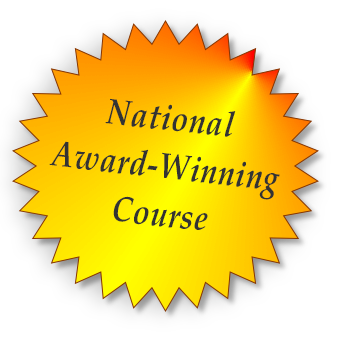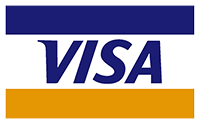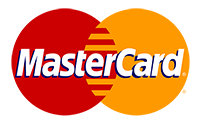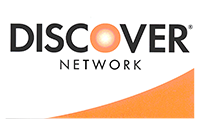-

- Solutions
- Corporate Services
- The Quest Team provides a broad base of proven products and services to organizations which require highly effective marketing, results-achieving sales organizations, and productive customer teams.
- In-House Training
- Quest Team in-house training programs are designed to make sure that your marketing, sales and customer support teams have that special edge of differentiation.
- Strategic/Key Account Management
- Our signature in-house training program is designed to make the most of your competitive advantage.
- Corporate Accounts
- Enroll multiple registrants from your company and keep track of each team member's course history.
- Classroom Courses
- On-demand
- Business Modeling
- Financial modeling as a basis for management decision and action
- Whether you are an entrepreneur or an "intra-preneur", if your role involves strategic planning, you will profit from being able to see the financial implications of your ideas.
- How to Read and Understand Financial Statements
- Understanding the concepts and language of financial reporting
- Whether you are an executive, manager or professional, you may need to evaluate a customer, plan new projects or policies, or simply deal with the financial aspects of your role. To be effective you'll want to be able to use the language of accounting.
- Pricing and Costing
- The art and science of pricing and costing
- To successfully manage a business, you must understand where your product costs actually come from. This course is designed to help you think about the alternatives you have in setting prices.
- Making the Microchip
- Making the Microchip - At the Limits III is an overview of the semiconductor processing industry. This video course provides a comprehensive view of the complex manufacturing steps using non-technical terminology and analogies.
- Knowledge
- Quest Team Articles
- Dozens of in-depth articles covering essential topics, all available here free of charge.
- The Expert's Panel
- Gain a deep understanding of important aspects of corporate-level complex sales, product marketing, and other information about technology industries from our panel of seasoned experts.
- Q and A Archive
- An archive of challenging questions and their answers
- Company
- Sign in

Available for a Limited Time, Now with Substantial SavingsIn response to the coronavirus pandemic, The Quest Team has developed a livestream edition of this important course. In addition to avoiding travel and lodging expenses, the livestream edition is priced 30% less than the classroom edition.
The next class is not yet scheduled. Please contact us for upcoming dates and information.
Assure Ongoing Profitable Growth and Market PositionDeveloped for the semiconductor equipment and materials industry, Fundamentals of Product Marketing 2.0 focuses upon professionals in product marketing, product management, and program management functions, and as a knowledge source for executive management. The course's purpose is to enhance each participant's skillset and provide a high degree of expertise in review, analysis and improvement of a product or product line to assure ongoing profitable growth and market position.
Who should attendRecommended for industry professionals from companies of all sizes interested or working in product marketing or product management, regardless of experience.
Special Feature: The Experts PanelOver the three days of the course, questions arise on specific marketing issues that the students have encountered. The Expert's Panel is an open forum held on the last day of the course and dedicated to answering those questions. Students gather collaborative information from industry experts on "real life" marketing challenges.
Course OutlineThe course consists of 10 classes. Each class runs from one to two hours in length. The classes are recorded and the video will be posted online for you to view as a webcast.
Session 1. The Semiconductor Environment
This session provides a comprehensive overview of the semiconductor and semiconductor equipment/materials industry from an historical, current and future perspective. An examination of market forces draws conclusions as to where and how the industry is heading. Both detailed and broad perspectives are included in the material.
What you will learn- Industry environment
- Critical supply chains
- Clues to future opportunities
- Industry direction
- Classical Moore's Law vs. new "More than Moore" technology directions and drivers
Session 2. Product Marketing Overview – Roles and Key Deliverables
The word marketing can mean any number of things in different industries, from product placement to advertising to customer relations. The role of marketing in the field of semiconductor equipment and materials is as unique as it is important. Often, newcomers to the marketing role can be overwhelmed by the sheer breadth of responsibility... demo reports, engineering meetings, strategic planning, manufacturing demand planning, and a seemingly endless barrage of meetings. On top of this, marketers are often thrown into the role as a transition from a technical function with little or no training.This section focuses on the value marketing brings to the organization, and what you can do to help keep grounded in the important deliverables which unlock growth. Learn to distinguish the urgent from the important and apply some core skills to make your product, your company, and your own career a success.
What you will learn- Marketing's role in the organization
- The core marketing deliverables
- Market validation
- Scorecard
- Build perceived value in a product
- Value pricing
Session 3. Marketing in the Product Development Process
Without a product there is no business. Developing a product in our industry is a unique and typically expensive endeavor, taking many years and often tens or hundreds of millions of dollars before achieving success. In this environment, you better make sure that you are developing something that your customer will want and value and be willing to pay for! This is the unique role of marketing.This section covers the role of marketing within the team sport that is product development. Learn processes for managing the product development process, and the key deliverables of marketing to enable long-term success.
What you will learn- Product development framework
- The phase-gate process
- Marketing's role in the phase-gate process
Session 4. Product Pricing Plan
To achieve optimum profits, pricing decisions must be integral to product strategy development from the very beginning. It doesn't begin with costs. Instead, the starting point is to determine what the customer will pay for the product that exists or is being defined.A focus on pricing offers numerous mechanisms to change the characteristics of the market, impact life cycle curves, establish positions, and other significant factors. Nine prime pricing models are explored in terms of their intentions, considerations, and outcomes.
What you will learn- Gathering data
- Who should be Involved
- Understanding different models
Session 5. Product Positioning
Positioning then comes into play and requires being proactive in the market place and truly understanding both the competitor's and customer's mind sets. Through presentation of positioning concepts, participants are lead to discover what stands in the way of getting the positive attention of customers. An exploration of different strategies, based upon the product's existing and desired position in the market place, lead to the requirements of pursuing each. A special exercise, transfers the concepts to real life issues participants are facing. This begins a positioning analysis process for continuation after the program.
What you will learn- Positioning strategies and examples
- Proactive positioning
- A Positioning "Starter Kit"
Session 6. Defining Product Differentiation and Creating Value Propositions
Identifying the product's payoff and translating it to the customer face-to-face, in promotional materials, or through news releases, requires understanding what the customer deems important and then using provable messages that highlight this. It starts when the product is being defined and features-benefits-proofs are developed through interaction with sales and customers, and making a valid interpretation of what competitors are offering. Messages are then refined through meaningful "value propositions". While this sounds like a simple concept, experience has shown that the process is often poorly handled.Effective developmental approaches, as well as multiple examples of effective "value propositions", are explored to assist the product marketing professional in guiding the construction of the materials and wording to be used in the field.
What you will learn- Developing your product's uniqueness
- Surfacing meaningful product payoffs for customers
- Guidelines for effective "value proposition" development
- Meeting the messaging needs of sales
Session 7. Market Segmentation & Product Distribution Plan
To compete successfully in today's volatile and competitive markets, mass marketing is not the best option. Instead, marketers must attack niche markets that exhibit unique needs and wants. Market segmentation is the process of partitioning markets into groups of potential customers with similar needs or characteristics who are likely to exhibit similar purchasing behavior. As such, market segmentation strategy is a foundation leading into positioning and branding. Possible methods of determining viable market segments are explored and linked to possible strategies for optimizing payoff by meaningful segmentation of the market.
Introducing new products into the market requires the same consideration as product development and inherently has many possibilities for failure. There are, however, ways to reduce risk and increase the possibility of roaring success. Support materials, training, field support, and required feedback systems are explored for various distribution channels.
What you will learn- Purpose of and the payoff from market segmentation
- Examples of segmentation in the semiconductor field
- Determination of strategies for targeted segments
- Elements that need to be defined or developed
- Clear definition of field support
- Promotional support
- Keys to success
Session 8. Strategic Marketing Growing Beyond the Core
A company's growth strategy often includes a mix of initiatives for both existing (core) and new customers. While the path to success in core markets is not easy, the path to finding and executing on opportunities in new markets introduces a geometric growth in complexity and uncertainty.In this section you will learn the fundamentals of creating a strategy of growth which includes an optimal mix of core and new market initiatives. You will learn some frameworks for the unique process of exploring opportunities in unfamiliar markets and with new business models. Risk management is a key element of any growth initiative, but especially so in unfamiliar territory - you will learn some tools to help identify, communicate, and manage risk. Additionally, learn how collaboration with ecosystem partners (universities, start-ups, etc.) can be an important strategy to help drive growth while mitigating risk.
What you will learn- Growth cycle
- Growth horizons framework
- Risk management
- Pipeline management
- Rapid learning
- Collaboration & open innovation
Session 9. International Aspects of Marketing
This session provides an understanding of the considerations to examine when interacting and marketing to various cultures. Norms and ethics are explored as well as governmental policies that could affect the business environment. Substantial detail provides an understanding of how to approach each industry associated region. Presentation of a Culture Map delineating expectations of the business world in each regions and provides understanding of the relative differences between countries.
What you will learn- Linking your product/product line on a "One-World" Stage
- Culture Map attributes in different countries
- IP Rights index
- Implications for product marketing
- Understanding the norms in each region
- Emphasizing product benefits (and features) as a function of geography
Session 10
10a Building a Product Strategy & Roadmap
Creating a winning business in semiconductor equipment and materials involves solving customer challenges time after time. This is not a "one and done" type of business. Customers rely on us to meet today's challenges as well as tomorrow's, and the learning from today will feed the solutions of tomorrow.In this environment, a good marketer will have a thoughtful roadmap for their product which both serves the customers' needs and delivers growth to your company. This section will cover the strategic and tactical aspects of creating a winning product strategy to deliver growth for you and your customers year after year.
What you will learn- Strategic planning
- Building a product roadmap
- Strategic roadmapping
10b The Experts Panel
Open forum dedicated to answering student's questions accumulated during the previous sessions. The class instructors respond with collaborative information for responding to real life marketing challenges.
What Participants Say
About Fundamentals of Product Marketing"Absolute necessity for product management. Great topics, well presented, well organized."
–Joe Wildgoose
Product Manager
Entegris
Franklin, MA"Can't live without it! This course prepared me for my new role in Product Marketing, and gave me the tools and methodologies to succeed in my new role."
–Kiyomi Monro
Market Development Manager
Coherent
Osaka, Japan"You must have this course under your belt. This is the second time I took this course and it was still a lot of new information to absorb."
–Brandon Lee
Director of Marketing & Business Development
Cimac, Inc.
San Jose, CA"It got me enthusiastic again about being in product marketing. Lots of good ideas and presenters. A lot of info that can be used in real life. Kudos for awesome time management! Started on time, finished on time."
–Russell Stevens, Applications Engineering Manager
Sachem, Inc., Austin, TX-
Class Instructors
- Len Given
- Tim Pratt
- Gianni Leonarduzzi

Fundamentals of Product Marketing
was awarded the
Certificate of Achievement
in Educationby the
American Society of Association Executives
The American Society of Association Executives awarded Quest Team it's prestigious National award, the Certificate of Achievement in Education, in the category, "Best United States program delivered through a large industry association."
The next class is not yet scheduled. Please contact us for upcoming dates and information.



Participants receive a comprehensive industry product marketing manual and templates for implementing a number of the tools presented in the seminar. With these tools you will cut the time it takes to function as a highly competent professional.
www.questteam.com copyright © 1999 – 2025 all rights reserved (d)